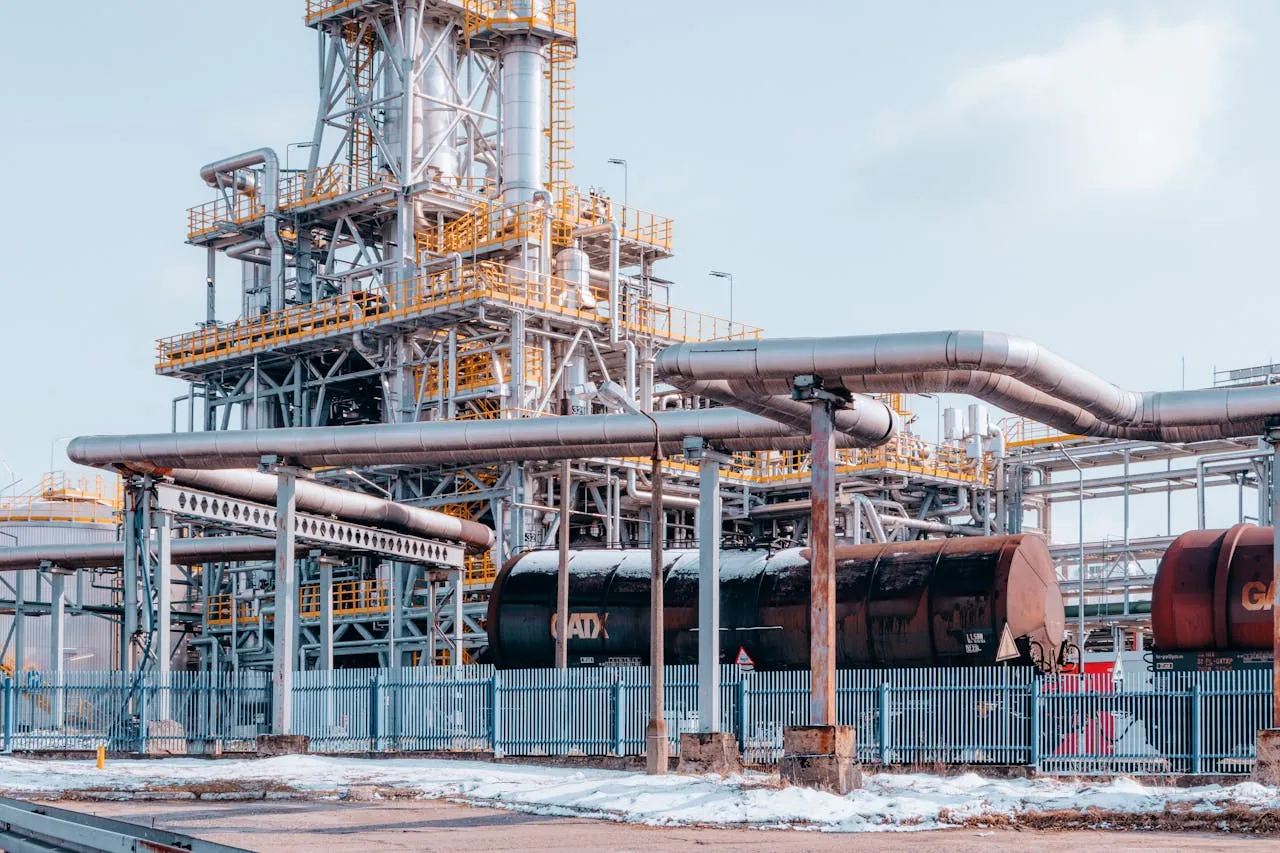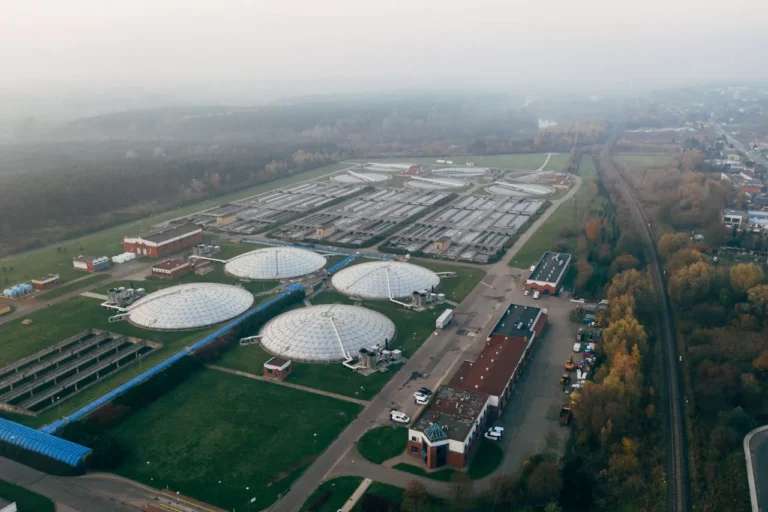
Aramco and Yokogawa Mark a Historic Step Toward Industrial Autonomy with AI-Controlled Operations at Fadhili Gas Plant
Yokogawa Electric Corporation (TOKYO: 6841), a global leader in process automation and industrial digital transformation, has reached a significant technological milestone in collaboration with Aramco, one of the world’s leading integrated energy and chemicals companies. The two organizations have successfully commissioned multiple autonomous control AI agents at Aramco’s Fadhili Gas Plant in the Kingdom of Saudi Arabia. This achievement represents a major advancement in the deployment of industrial artificial intelligence (AI) solutions for process optimization and operational efficiency in the energy and chemicals sector.
A Breakthrough in Industrial AI Deployment
The implementation marks the first time that multiple coordinated AI control agents have been installed and operated in a live gas processing facility. Developed by Yokogawa, the system leverages the company’s proprietary Factorial Kernel Dynamic Policy Programming (FKDPP) reinforcement learning algorithm. Unlike traditional control methods that depend heavily on manual operator intervention or fixed control models, the FKDPP-based AI autonomously learns and adapts to changing process conditions to maintain optimal performance.
These AI agents directly control and optimize the Acid Gas Removal (AGR) unit at the Fadhili Gas Plant. The AGR process is a crucial stage in natural gas treatment, where undesirable gases such as hydrogen sulfide (H₂S) and carbon dioxide (CO₂) are removed from raw gas streams using amine-based chemical solvents. By applying advanced reinforcement learning, Yokogawa’s AI agents can continuously adjust key process variables to achieve improved energy efficiency, reduced chemical consumption, and more stable plant operations.
A Phased Approach to Autonomous Operations
To ensure safety, reliability, and gradual optimization, Yokogawa implemented the AI solution in three distinct phases. Each phase focused on progressively expanding the AI’s control coverage within the AGR unit, starting from specific sections and ultimately extending to the entire core process.
Before deployment, Yokogawa created a high-fidelity simulator of the Fadhili Gas Plant. This digital twin environment allowed the AI agents to undergo extensive training and testing under a wide range of simulated operating conditions. The agents were evaluated for accuracy, stability, and reliability to confirm their ability to handle real-world variations in temperature, pressure, and gas composition.
Once validated, the AI system was integrated into Yokogawa’s CENTUM VP integrated production control platform—an advanced Distributed Control System (DCS) widely used across the process industries. This integration ensured that all autonomous operations would leverage the existing safety and control functions of the plant, maintaining the highest standards of operational integrity while introducing autonomous capabilities.
Tangible Efficiency and Sustainability Gains
Preliminary performance data from the Fadhili Gas Plant indicate impressive results. The AI-controlled AGR unit achieved a 10% to 15% reduction in amine and steam consumption, alongside a 5% decrease in power usage. These gains translate to substantial reductions in operating costs and environmental impact, as lower steam and power demand correspond to decreased fuel use and emissions.
Additionally, the AI system demonstrated the ability to sustain enhanced process stability even under fluctuating environmental and feed gas conditions. This stability minimizes process upsets, reduces the need for manual adjustments by plant operators, and helps maintain consistent product quality. The deployment also led to a significant reduction in operator workload, freeing personnel to focus on higher-level tasks such as strategic optimization, maintenance planning, and safety assurance.
Leadership Perspectives on the Collaboration
Khalid Y. Al Qahtani, Senior Vice President of Aramco Engineering Services, highlighted the strategic importance of this initiative:
Aramco has embarked on an ambitious plan to unlock value by deploying a wide range of industrial AI applications across our operations. The collaboration with Yokogawa is one of many initiatives that focus on improving efficiency, enhancing sustainability, and generating more value for our shareholders. It reflects how the company is harnessing advanced technology, including AI, to elevate its performance and reinforce its position as a technology leader in the energy sector. We look forward to building on this important milestone, as we explore further adoption of cutting-edge solutions that will contribute to a new era of industrial innovation.
His remarks underscore Aramco’s broader digital transformation strategy, which emphasizes automation, data analytics, and AI-driven process optimization as key enablers of operational excellence and environmental responsibility.
Kunimasa Shigeno, President and CEO of Yokogawa Electric Corporation, expressed pride in the successful collaboration:
We are honored that Yokogawa was entrusted by Aramco to implement such groundbreaking technology in one of its major facilities. We are very pleased that the results have already exceeded expectations. Yokogawa is advocating the transition from industrial automation to industrial autonomy (IA2IA), and this deployment proves that we are ready to lead the way towards safe and secure autonomous operations for plants in the energy sector.
Shigeno’s statement reflects Yokogawa’s long-term vision of enabling autonomous industries through a combination of process control expertise, AI, and digital twin technologies.
Pioneering the Transition from Automation to Autonomy
Yokogawa’s Industrial Automation to Industrial Autonomy (IA2IA) initiative envisions a future where plants can self-optimize and self-adapt with minimal human intervention. By applying advanced AI algorithms like FKDPP to complex chemical and gas treatment processes, Yokogawa is demonstrating that industrial autonomy is no longer a theoretical concept but an achievable reality.
The success of the Fadhili Gas Plant deployment provides a compelling proof of concept for future autonomous systems in refineries, petrochemical complexes, and other energy infrastructure. The reduction in energy consumption, improved stability, and enhanced safety achieved through AI-driven control are key indicators of the transformative potential of such technologies.
Furthermore, the project supports global efforts toward decarbonization and sustainability, aligning with Aramco’s commitment to improve the efficiency of its operations and reduce its carbon footprint. By intelligently optimizing steam, power, and solvent use, the AI system directly contributes to reducing greenhouse gas emissions and promoting responsible resource utilization.
A New Chapter for Industrial AI
The commissioning of multiple autonomous control AI agents at the Fadhili Gas Plant represents a landmark achievement not only for Aramco and Yokogawa but for the global process industries at large. It demonstrates how advanced AI technologies can be safely and effectively integrated into mission-critical operations, paving the way for the next generation of self-learning, self-optimizing industrial systems.
As evaluation and refinement continue, both companies are expected to expand the scope of AI-driven control to other units and facilities, driving the transition from traditional automation toward a truly autonomous, intelligent industrial ecosystem.







